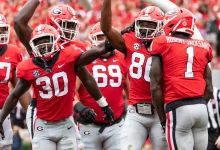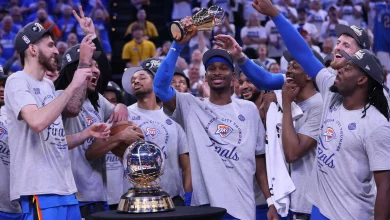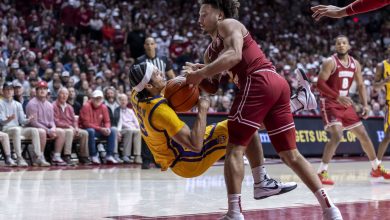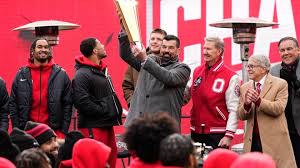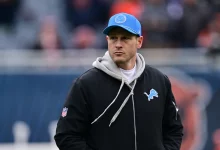Before the Super Bowls, Jimmy Johnson built a monster at The U. From 1984–1988, he turned Miami into a swagger-filled powerhouse—national champs in ’87, a 52–9 record, and a pipeline of future NFL stars. Jimmy didn’t just win—he changed the culture
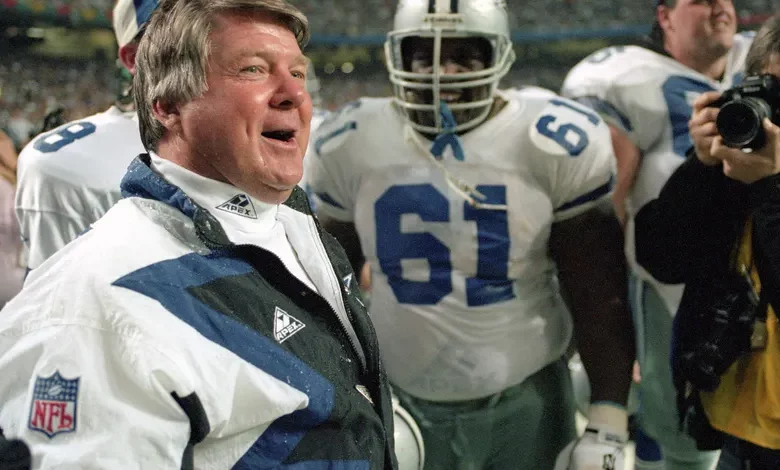
Before the Super Bowl rings, the Hall of Fame induction, and the recognition as one of the greatest football coaches in history, Jimmy Johnson built his legacy at the University of Miami, transforming a program that was already brimming with talent into one of the most dominant and swagger-filled powerhouses in college football. From 1984 to 1988, Johnson’s leadership not only brought victories to the Hurricanes but also established a cultural shift that would define Miami football for generations. Under his guidance, Miami became synonymous with confidence, relentless play, and unmatched talent, culminating in a national championship in 1987 and a pipeline that would funnel future NFL stars into the professional ranks.
The University of Miami had always been a football program with potential. Its location in South Florida, a region teeming with elite high school football talent, made it a prime spot for recruiting. However, despite the fertile recruiting grounds, the program had struggled to consistently reach its full potential. Enter Jimmy Johnson. Hired as head coach in 1984, Johnson wasted no time in asserting his vision for the program. His philosophy was simple: “We’re going to be the best. We’re going to be the most physical, the most talented, and we’re going to bring an edge that no one else can match.” What he did was far beyond just winning games; Johnson fundamentally reshaped Miami’s football culture, creating an environment where winning was expected, swagger was celebrated, and every player believed they were destined for greatness.
Johnson’s first order of business was to recruit. Miami had talent, but Johnson wasn’t interested in just the usual suspects; he wanted to build a team full of players who were mentally tough, physically gifted, and had the desire to take the program to new heights. His recruiting efforts, combined with the fertile recruiting base of South Florida, allowed him to bring in some of the best athletes in the country. Under Johnson, Miami’s roster was a who’s who of future NFL stars, including players like Michael Irvin, Jerome Brown, Russell Maryland, and Gino Torretta, just to name a few. Johnson didn’t just recruit talent—he recruited a mindset.
But it wasn’t just the talent on the field that set Miami apart during Johnson’s tenure—it was the swagger. Under his leadership, Miami football became a brand, and that brand was built on confidence, brashness, and an unrelenting belief in their own superiority. The Hurricanes played with a chip on their shoulder, exuding an attitude that said, “We’re the best, and we know it.” Miami’s players were known for their flashy celebrations, their confidence in trash talk, and their swagger-filled style of play. For the rest of college football, the Hurricanes were no longer just another team—they were a force to be reckoned with, a program that carried an attitude that, whether you liked it or not, demanded respect.
The 1987 season was the pinnacle of Johnson’s early success at Miami. That year, the Hurricanes not only captured the national championship but also solidified their place in college football history. The ‘87 squad, which featured stars like Michael Irvin, Vinny Testaverde, and Jerome Brown, went 12-0, capping off the season with a dominant Orange Bowl victory over the Oklahoma Sooners. The 1987 national title was the program’s first under Johnson and the third in its history, but it was much more than just a championship—it was a statement.
For Johnson, that national championship was the culmination of years of hard work, recruitment, and the instillation of his culture. Miami was no longer just a team—it was a dynasty in the making, a juggernaut that would go on to dominate the college football landscape for the remainder of the decade. The success of 1987 also laid the groundwork for the future, as Johnson’s players would go on to win Super Bowls and Pro Bowls, while the program itself became a feeder system for the NFL. The pipeline of talent coming out of Miami was nothing short of extraordinary, and Johnson was the architect of that success.
Beyond the wins and losses, what Jimmy Johnson did at Miami was create a culture that would resonate far beyond his time at the school. He built a program that was not just about football—it was about a way of life. Miami became a place where athletes were encouraged to embrace their identity, to play with emotion, and to showcase their talents in a way that had never been seen before in college football. Johnson’s influence was so profound that even after he left for the NFL, the swagger and culture he instilled in Miami football endured. The Hurricanes continued to thrive, winning national titles in 2001 and 2003, and becoming a dominant force in college football for decades.
In fact, Johnson’s tenure at Miami set the stage for the team’s success in the 1990s, a decade in which the Hurricanes became arguably the most feared program in college football. But the credit for that success belongs to Johnson. He was the one who laid the foundation. It was Johnson’s meticulous attention to detail and his ability to extract the best from his players that created a dynasty. But beyond the X’s and O’s, it was his leadership, his vision, and his unapologetic attitude that made Miami into a symbol of power, pride, and confidence.
Looking back at Johnson’s time at Miami, it’s easy to see why he is considered one of the most important coaches in college football history. From 1984 to 1988, he posted a 52–9 record, and the program became a perennial contender for the national championship. His players flourished both on the field and off it, going on to enjoy successful NFL careers, with some becoming Hall of Famers. But what truly set Jimmy Johnson apart was the culture he built, one that pushed Miami to the top of the college football world and would define the program for years to come.
One of the most notable aspects of Johnson’s leadership at Miami was his ability to get the best out of his players. He knew that football was more than just a physical game—it was a mental game, and he made sure that his players were prepared for everything. He instilled in them the belief that they were not only capable of winning—they were expected to win. His ability to push players to be their best was legendary. Under Johnson, Miami became known for its toughness, resilience, and competitive spirit. Players didn’t just play for the team—they played for each other, and they played for the culture that Johnson had created.
Johnson’s impact wasn’t limited to just the football field; he also influenced the broader college football landscape. His success at Miami helped to redefine what it meant to be a “successful” program. Johnson’s style, which was often seen as brash and audacious, challenged the conventional norms of college football. He wasn’t afraid to push boundaries, whether it was in recruiting, game planning, or his approach to team culture. His work at Miami helped lay the groundwork for future coaches and programs that would embrace a similar attitude, one that prioritized confidence and self-belief.
As the years went on and Johnson moved on to NFL coaching success with the Dallas Cowboys, his legacy at Miami only grew. He left behind a program that was built on the foundation of winning, toughness, and swagger—values that would continue to be passed down to future generations of Hurricanes players. The foundation that Jimmy Johnson laid at Miami not only created a dynasty in college football but also set the stage for future success on the biggest stages, including Super Bowls and Pro Bowls, as his former players achieved greatness in the NFL.
Jimmy Johnson’s time at Miami was more than just a chapter in college football history; it was a cultural revolution that changed the way people viewed the sport. His ability to combine talent with confidence, toughness with swagger, and a relentless pursuit of excellence, created a blueprint for success that would resonate far beyond his tenure in Miami. From the moment he arrived in 1984, Johnson built a monster at The U—a monster that would go on to leave an indelible mark on college football, with championships, swagger, and a legacy that still resonates today. Jimmy Johnson didn’t just win at Miami—he redefined what it meant to be a champion, and in doing so, changed the landscape of college football forever.

